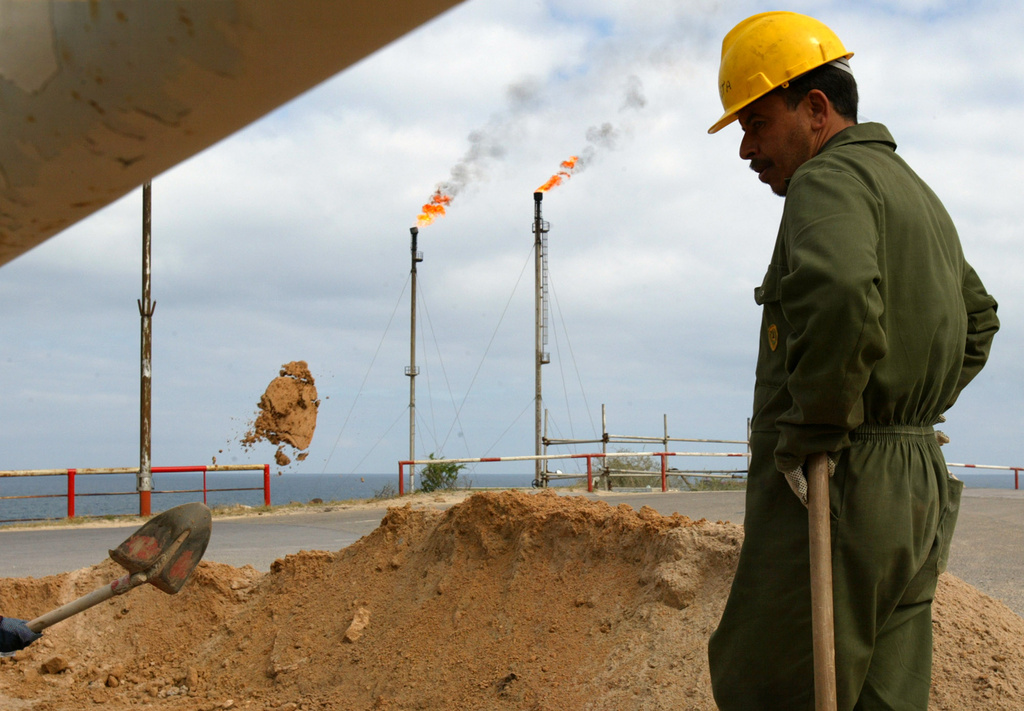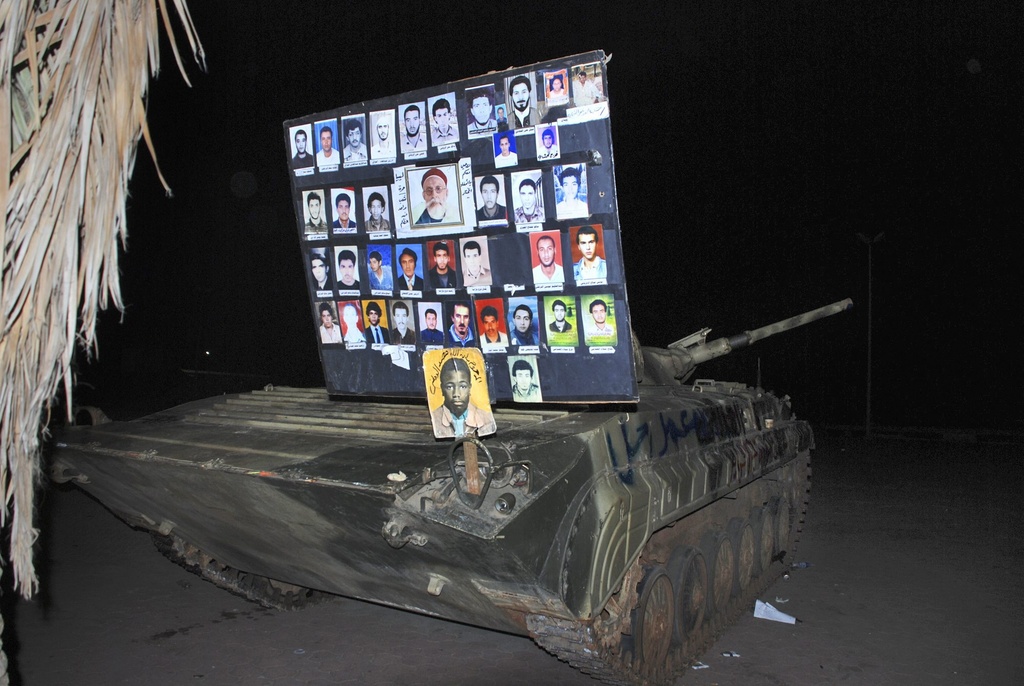“The main thing is the information gets out”

A small group of Libyans living in exile in Switzerland are trying to show what is really going on in their home country, despite the censorship imposed by the regime.
Their small “news agency” gathers information from Libyans caught up in the ongoing crisis, which sees totalitarian leader Moammar Gaddafi clinging to power as protests mount against him.
It is not easy to know exactly what has been going on in Libya – there has been censorship, limits on telephone and internet lines, journalists have been denied access and the regime has had a grip on the media for years.
Saleh Magdub is not able to give precise answers either. The Libyan, who fled to Switzerland in 1995, is however trying with the aid of like-minded individuals to gather some unfiltered information from his homeland, “to show the whole world what is happening in Libya”.
The group has been operating since the situation escalated in Libya and their base is a small office in a run-down industrial area on the outskirts of Olten, a town 30 minutes from the capital, Bern.
“Some of us were already active in the human rights’ organisation Human Solidarity. Some are now working in the human rights sector, others in electronic intelligence,” Magdub explained.
Trusted sources
Foreigners are increasingly able to leave Libya and report on what is happening. How does Magdub get his information from people remaining in the country?
“Via the telephone or the internet. Luckily not all the connections are totally down, so conversations and mails are still possible,” he told swissinfo.ch.
At first the group used their relatives as sources, but they have now also built up a network in the most trouble-hit areas.
They are well aware that they are reporting about a country in which information has long been manipulated. “We know our people; there is a climate of mutual trust,” Magdub said.
“We always ask precise questions about the place and what is going on. Then we call other people and ask the same questions. This allows us to work out whether the information is correct.”
The team has also sent a satellite telephone to Libya to help ease communications. It should soon arrive in the capital, Tripoli – where tensions are now concentrated.
Independent view
“In the first days of the unrest, we were almost the only source publishing independent information from Libya. Al Jazeera took news from us and Reuters also reported on events that we had flagged up, although we can’t say for sure whether Reuters took the information from us or someone else who reported on the same thing,” Magdub said.
But it’s not important to him whether information in the media comes from his group or not.
“We want the world to be informed about what is happening in our country. We’re doing this voluntarily, and are not making a business out of it – the main thing is that the information gets out.”
The Libyan exiles send out their information via an email list, a process which functions extremely well, according to Magdub. A Libyan exile in Spain, for example, posts the group’s information on social networking site Twitter.
“We also want to report on the small things, which don’t really interest the big media outlets but that are important for us Libyans,” he added.
No extremist ties
But what are the motives for offering the service? Magdub counters allegations that he and his team belong to an extreme Islamic group.
“That’s not correct. I’ve lived for 16 years in Switzerland and have many acquaintances here. We believe that Libya’s political shape should mirror Switzerland’s. Everyone should be able to live in personal freedom in their own country. That’s our aim.”
One of Gaddafi’s sons, Saif al-Islam, has warned Europe that extremists would come to power in Libya if the current government falls. Magdub dismisses this.
“Most Libyans, and also most people in Arab countries, believe in the civil state. Everyone should have freedom of religion. The important thing is that people are tolerant of each other and that there are laws.”
Magdub believes the timing of Gaddafi’s fall depends a lot on the international community.
“It could be today, but Gaddafi will most probably fight to the last. If the world helps us, it shouldn’t take too long, but if we Libyans have to do it alone, it will take longer and there will be a lot more bloodshed,” he said.
People don’t want much from the international community, Magdub added. They should simply no longer recognise Gaddafi as head of state.
Magdub, born in 1967, fled to Switzerland from Libya in 1995. He gained refugee status in 1998.
He is married and has six children.
Magdub studied mechanical engineering and now works as a network engineer in a telecommunications company.
Swiss Foreign Minister Micheline Calmy-Rey has called on the Libyan leadership to respect the basic rights of the people. In a written statement she said she was “deeply concerned” at the acts of violence against demonstrators in North Africa and the Middle East.
There are 46 Swiss citizens registered at the Swiss embassy in Tripoli, most of them dual nationals. So far there have been no reports of any Swiss citizens in difficulties as a result of the protests.
The ministry advises any Swiss currently in Libya to temporarily leave the country if possible and to inform the embassy of their departure. Those remaining should avoid crowds.
(Translated from German by Isobel Leybold-Johnson)

In compliance with the JTI standards
More: SWI swissinfo.ch certified by the Journalism Trust Initiative












You can find an overview of ongoing debates with our journalists here . Please join us!
If you want to start a conversation about a topic raised in this article or want to report factual errors, email us at english@swissinfo.ch.